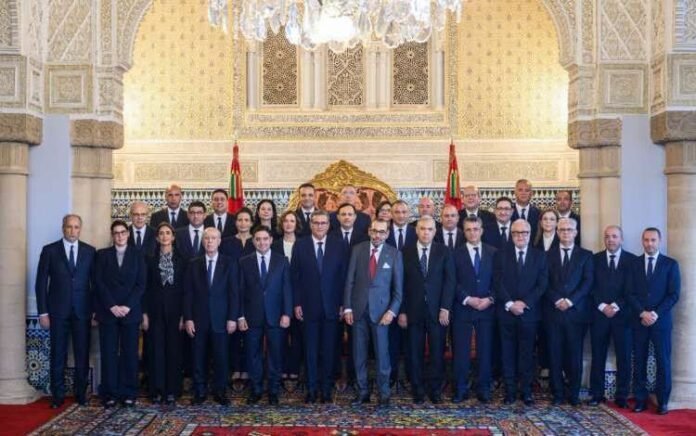A powerful opinion piece by journalist Rida Addam ignites criticism of the Akhannouch government and exposes the fragility of the Moroccan state.
Morocco Now has flagged a powerful opinion article published by journalist Rida Addam on August 4, 2025, under the striking title:
“Morocco in the Grip of Total Collapse: The End of the Akhannouch Era and the State’s Dilemma.”
In it, he describes the current political, economic, and social moment as a time of systemic collapse — not just of a government, but of the state as a whole: its institutions, its narrative, and its governance.
The article, widely shared across social media platforms, stood out for its scathing tone — a tone which, according to some, reflects deep popular anxiety over Morocco’s internal trajectory, amid declining economic indicators, unprecedented social unrest, and a widespread sense of betrayal.
Shocking Headlines… and Legitimate Questions
In a rare move, the author goes beyond attacking governmental performance and claims that Morocco is witnessing a deliberate dismantling of state institutions, amid official silence and dominance by elites he describes as “shameless and unpatriotic.”
Addam argues that Prime Minister Aziz Akhannouch is nothing more than a “hollow figurehead,” and that his downfall signals not merely a political transition but the collapse of an entire system built on deception and recycled failure.
He dubs the current reality a “grand workshop for falsifying awareness,” where numbers are sugarcoated, truth is silenced, and the state is emptied of its democratic and social substance.
Between Economic Figures and Ground Realities
In a direct style, the article presents alarming indicators:
-
Growth fell below 3%, while inflation surpassed 6%, signaling a decline in purchasing power.
-
Employment programs like “Forsa” and “Awrach” collapsed into precarious, futureless contracts.
-
The “Green Morocco Plan,” despite billions spent, failed to ensure food or water security.
-
Education and healthcare systems are described as a “daily massacre” and a “factory of ignorance.”
These signs, according to Addam, point to a structural crisis — one that cannot be solved through ministerial reshuffles or cosmetic constitutional tweaks.
Royal Silence: A Signal or a Verdict?
One of the article’s most striking points is the king’s silence regarding Akhannouch in the recent Throne Speech — no mention, not even a ceremonial thank you — interpreted as a “silent political slap,” possibly signaling the end of Akhannouch’s time… and a turning point for the coming phase.
Still, Addam avoids speculative interpretations and links the silence to a deeper system-wide dilemma — warning against recycling the same broken model without accountability.
State Media: Platform for Loot or Forum for Accountability?
The article dedicates a section to the crisis of state-run media, calling it a “living national funeral,” now reduced to a propaganda tool for a system that’s lost its credibility — replaced by YouTubers selling illusions and glorifying failure, while professional journalism is suppressed, jailed, or forced into exile.
According to the Reuters Institute (2024), Moroccan media lost 62% of its audience in just five years — a stark sign of public mistrust.
Diplomatic Paralysis and Waning Regional Clout
Addam also highlights Morocco’s diplomatic stagnation: tensions with neighboring Maghreb countries, stalled normalization agreements, and the withdrawal of promised Israeli investments.
He argues that Morocco is becoming a state led from abroad — fragile, isolated, and ineffective within its regional or African context.
Accountability or Another Cycle of Ruin?
Addam closes with a central question:
“Who will be held accountable? Will only Akhannouch take the fall, or will the whole system face scrutiny?”
A fair — and urgent — question, especially as growing public sentiment sees the current political phase as expired and fears that “stability without reform” is a guaranteed recipe for explosion.
Morocco Now‘s Final Take:
Rida Addam’s article, regardless of its sharp tone, reflects a narrative crisis within the Moroccan state: loss of direction, erosion of trust, and a growing gap between triumphalist rhetoric and a collapsing reality.
According to this reading, it is time to deeply reconsider Morocco’s political and economic model — before the door of reform closes and the door of popular anger swings wide open.


